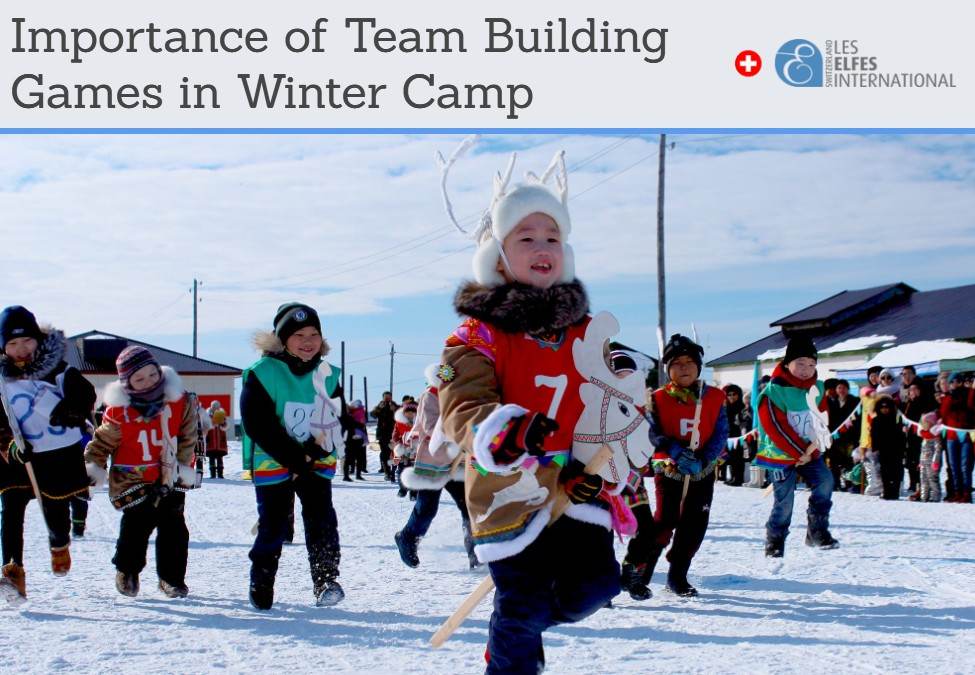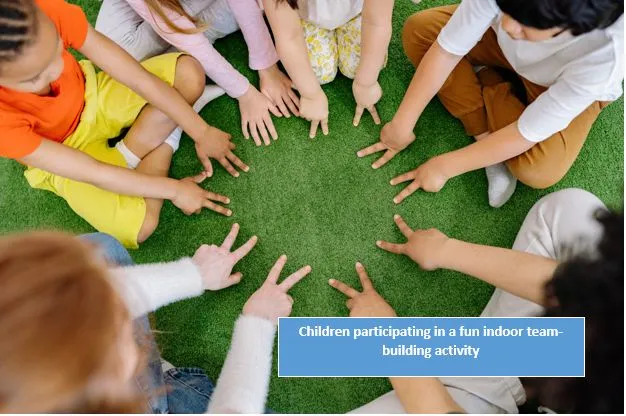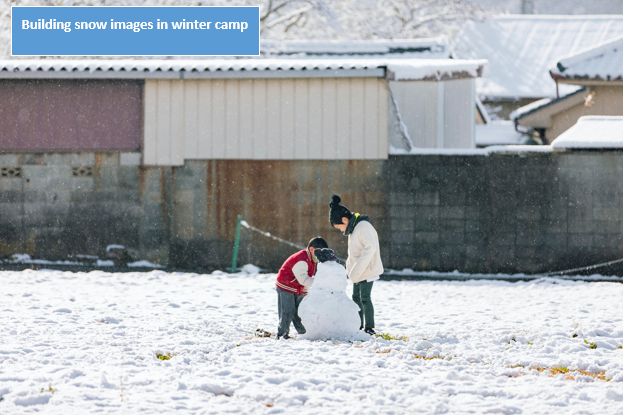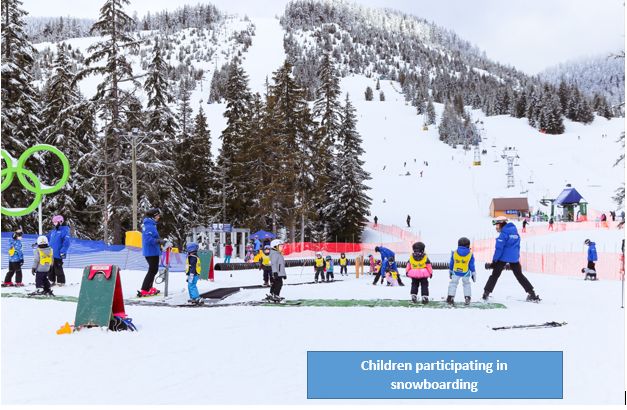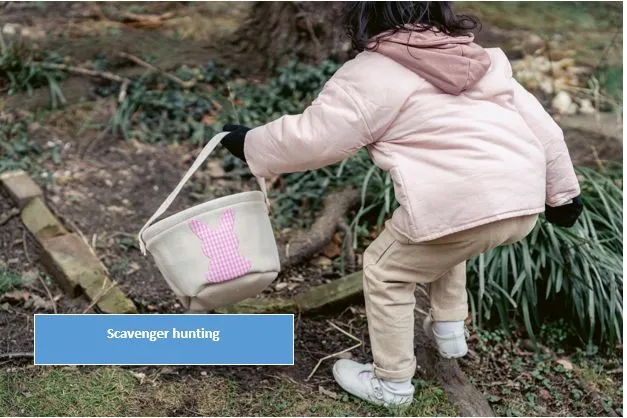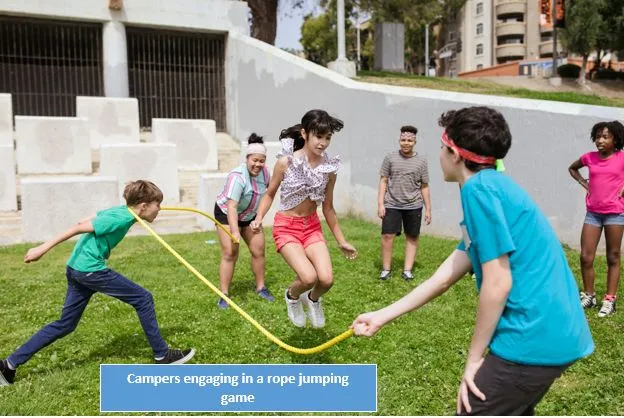Outdoor team-building activities allow campers to forget their school and daily challenges and focus on creating new connections and building trust with their peers. As a supervisor, engaging your colleagues with quick games, fun quizzes, or icebreakers in a class take time and effort. What with the constant school pressures and numerous homework to complete? A winter or summer camp provides the perfect opportunity for kids to engage in various team-building events. This article discusses the importance of participating in team building games winter camp for children.
What is a Team Building Game?
Team-building games or activities are competitive events that bring kids, helping them have fun and build character skills among them. During a team-building event, children learn essential skills such as problem-solving, communication, creative thinking, and resilience.
How many People are Needed to Play this Game?
Different groups host team-building activities for various objectives. The activities a group engages in depend on the goals they are seeking to achieve. For example, a sizeable team-building group can be ideal for developing shared friendships and experiences.
The maximum number of people for small groups seeking to boost their problem-solving and communication skills can be 12. Having a skilled facilitator to manage a sizeable team-building event for kids is important. Excellent skills come in handy to keep children attentive, execute instructions, and ensure the event is engaging.
What are some Team Building Games that can be Played at a Winter Camp?
Maintaining engagement and motivation throughout the year is critical for a school’s success. Team building winter activities are a good way of helping children nurture their skills within a team environment. While the winter weather can be dull and uncomfortable, planning fun and engaging games for your team can keep their morale up. Here are exciting team-building exercises that are ideal for kids.
· Seeing Spots
This activity involves putting a colored sticker dot on every camper’s forehead without letting them know the colour. Once the game starts, every team with the same must find one another without speaking. This team-building activity helps facilitate cooperation and non-verbal communication.
· Laser Tag or Paintballing
Laser tag and paintballing are excellent team-building activities that help campers burn excess energy. If paintball seems overly rough, allow the children to play laser tag. Both games are great team-building exercises for children.
Laser tag is a fast combat game played using guns that shoot infrared beams. It’s specially designed with undercover sections and vantage points. Laser tag aims to shoot opponents as many times as possible, whether the competitors are playing in teams or single mode. The game is safe and ideal for children from the age of 6. It combines strategic skills and physical activity.
· Obstacle Course Relays
Obstacle course relay is one of the best team-building activities ideal for teens. The first team comprising all members to complete the course becomes the winner. Winter camp organizers can plan various activities that require children to work individually or as a team.
Obstacle courses teach kids to collaborate in tasks while helping them understand the importance of individual contributions in achieving a common goal. While obstacle courses can be rigorous, they help children acquire social skills that nurture a sense of belonging and inspire motivation. A relay race is a fun group activity that encourages teamwork.
· Volleyball
A volleyball tournament is among the best outdoor team-building sports for children. All you need to play this game is a volleyball and a net. Campers can play this game indoors during unbearable winter conditions.
· Soap Box Derby
Soap box derbies are creative projects that promote teamwork and help children develop excellent problem-solving skills. During these contests, campers build cars from scratch before racing them. Usually, these cars don’t have motors. Every team must collaborate in designing the vehicles and cheer them during the race. This is a time-intensive activity that requires many hours to complete. It can last a half or full day. The materials kids need for this activity include wheels, crates, and plywood.
· Outdoor Team Building Picnic
Winter camp picnics are excellent outdoor team games for children. To set up the event, you must have a vast open space, like a field or park near the camping site. Set up picnic tables and have the team members bring their lawn chairs, blankets, salads, chips, sandwiches, and hot drinks to keep the cold at bay. Children can play games, hold contests, or dance to their favorite music.
· Double Dare
Double dare is a team-building activity where contestants compete in various physical challenges. To play the game, set up stations and collect all the required materials beforehand. Split the campers into teams and record the score as contestants complete the challenges. Often, this activity includes mini-games, obstacle courses, and trivia quizzes.
· Go on a Rafting Experience
Rafting presents campers with turbulent waters that they can overcome with teamwork. It is ideal for older children. To steer and propel the inflatable boat, children should delegate a leader and keep clear communication across the journey. Campers will have created unforgettable memories and built special memories with their teammates when they complete their route.
· Go Hiking and Enjoy Some Fresh Air
According to research done by Stanford University, spending time in nature is ideal for calming anxiety, reducing stress, and lowering the risk of depression. The vigorous school schedule can be stressful for children, and they often need some time to unwind and relax. Organizing a group hike for campers during winter camp can improve their well-being. Besides improving individual health, combining exercising and socializing is an excellent way of boosting school camaraderie.
· Learn how to Sled, Ski, or Snowboard
Teaching kids how to snowboard, ski, or sled is crucial during winter camp, especially if they don’t already know how to do it. Combining socializing and learning new skills is an excellent way of encouraging interpersonal bonding.
· Four-way Tug-of-war
This outdoor activity is more fun than the traditional tug-of-war. Pick two long jump ropes and tie them together at their central points to create an X shape before tying a bandana at that point. Use cones to form a circle that fits around the center.
Split the group into four equal teams and have each stand at each end of the ropes. Signal the teams to start pulling. The teams should aim to be the first to drag the other groups towards their direction, far from the bandana, to move out of the circle. Children who lack the confidence to participate in this game can play the role of a referee.
· Hot seat
Split the campers into two teams and let them sit in groups facing a makeshift chalkboard or whiteboard. Place an empty chair for each team in front of the class facing the participants. The chairs are known as hot seats. Select one volunteer from each group and have them sit on the hot seat facing their teammates. Have a list of vocabulary words to use during the game.
Pick one and write it on the board. Every team will take turns getting the member on the hot seat to guess the word using definitions, antonyms, and synonyms. Ensure team members collaborate so that each member gets a chance to provide a clue. The camper on the hot seat will listen to their teammates and try to guess the word.
The first participant to get the word right will win a point for the team. When participants guess the word correctly, a new member from each group will replace them on the hot seat. A new round will then begin with a new word.
· Scavenger Hunt
Scavenger hunting is an excellent team-building activity for children. Participants must collaborate to solve various puzzles and clues to help them find items. Campers can play scavenger hunt outdoors or indoors. It is an excellent activity for large groups. Planning a scavenger hunt outing can be time-consuming, but it’s worthwhile. Use easy-to-solve puzzles and clues to plan scavenger-hunting activities for younger children.
Consider the number of participants and their ages when choosing the number of items they should find. If you are working with older kids, include group tasks such as dancing together and filming the entire event. Scavenger hunting is one of the best activities that help promote collaboration and communication among participants.
· Wake not the Sleeping Troll
This is among the simplest team-building games for children that require little preparation and limited space. The sleeping troll, in this case, is the team leader. Without speaking, team members should line up based on their height, from the tallest to the shortest. After managing this task, they should shout “boo” at the sleeping troll and scare them enough to proceed through the bridge successfully. This activity reiterates the importance of non-verbal communication, which is crucial for developing team bonds.
Facilitating Team Building Games
Facilitating team building games in a winter camp for children is a crucial role that requires a blend of guidance and encouragement. Camp counselors and facilitators play a pivotal part in fostering a positive and inclusive environment where teamwork thrives. They must not only explain the rules of the games but also emphasize the importance of cooperation, communication, and sportsmanship.
During these activities, they act as mentors, helping campers navigate challenges, resolve conflicts, and learn valuable life skills. After each game, facilitating debriefing sessions allows campers to reflect on their experiences and understand how they can apply what they’ve learned in their daily lives. Ultimately, effective facilitation transforms winter camp team building games into powerful opportunities for growth and bonding.
21 Importance of Team Building Games in Winter Camp
Engaging children in team-building activities from an early age helps them thrive in school and their workplaces in the future. Here are reasons you should enroll your child in a winter camp-based team-building activity.
1. They help children understand the importance of working together efficiently.
2. Promotes better communication among team members, a skill they can carry back to school and when engaging with their friends and family members
3. Team building helps children understand their peers and facilitates healthy relationships with one another.
4. These activities help children develop a sense of responsibility.
5. They develop high levels of compassion, self-confidence, empathy, and self-esteem.
6. Develops inclusivity and trust among team members
7. Helps children have fun as a team which can be a stress reliever
8. Helps campers understand their peers better
9. Different team-building games can motivate campers to beat challenges in school and their daily lives.
10. Helps children learn new processes and skills
11. Winter camp team-building activities stimulate creativity while empowering new ideas.
12. Allows campers to become better problem-solvers
13. Increases team unity
14. Helps children acquire experience and wisdom. When campers succeed or fail during a team-building activity, they will never forget what it took to become successful. They will also understand why they failed and strive to succeed. Team building games for kids prepares them to face and beat challenges in the future.
15. Develops and nurtures leadership qualities and skills
16. Children learn how to respect and trust one another.
17. Nurtures and reinforces responsibility among children
18. Encourages innovation
19. Helps children enjoy fresh air and some vitamin D
20. Provides an opportunity for kids to enjoy the outdoors and take a break from the screen
21. Allows children to bond with their peers from different cultures and build long-lasting friendships
While team-building activities for children can be lots of fun, managing a large group of teens and keeping them engaged can be daunting. Often, teens struggle with interacting with their peers, especially if they meet them for the first time. You must select activities with a suitable difficulty level to build teenagers’ and younger children’s interest and keep them engaged in physical and bonding activities.
Fun team-building games for kids should be challenging yet fun enough to keep them engaged and active. However, they should also have an achievable goal to avoid disconnection. Supervisors can play the role of a cheerleader to create a safe and encouraging environment for the participants. Before starting any activity, supervisors must explain the rules, especially for group activities.
Conclusion
As we’ve seen above, team-building activities can have numerous advantages for children. Suppose you are sending your children on a team-building program for the first time. In that case, it’s crucial to understand that many winter camps provide a safe and conducive environment to ensure participants have fun and create unforgettable memories harmoniously. Check our website for related articles to motivate you to enroll your child in the next team-building event.





